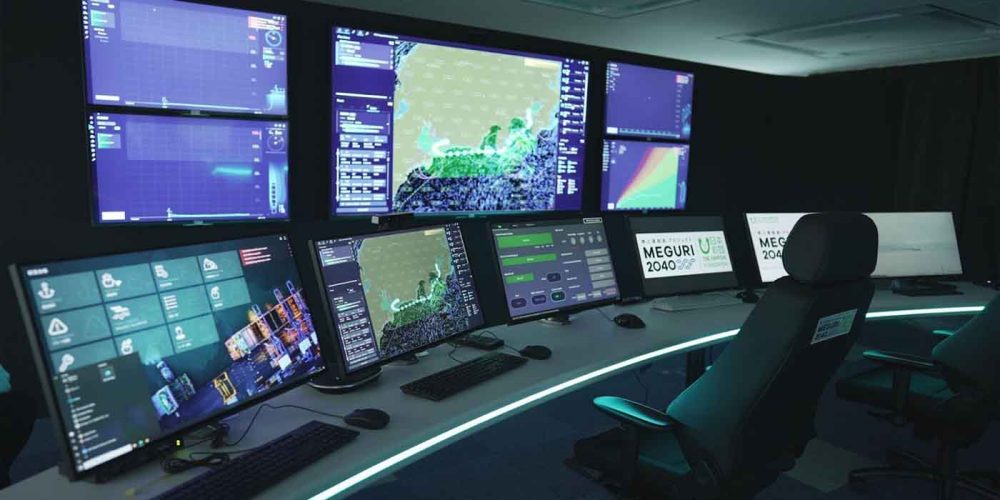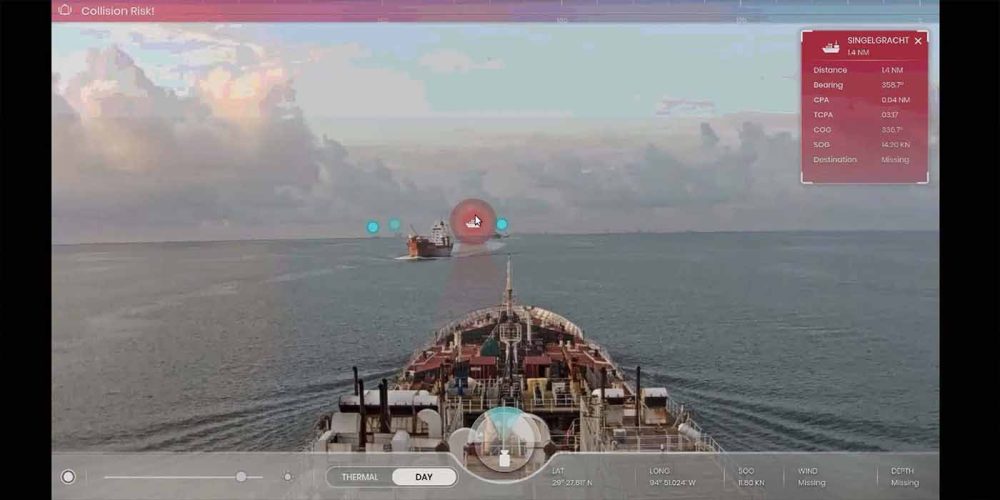
The “world’s first” autonomous commercial cargo ship has successfully completed a near-500 mile voyage in the congested waters of Tokyo Bay, traveling without human intervention for 99% of the trip. The 750 gross-ton vessel was powered by Orca AI, whose software helped the ship avoid hundreds of collisions autonomously.
Orca AI is a developer of safety software platforms designed specifically for maritime vessels. Founded in 2018 by two naval technology experts, the company combines sensors with existing safety systems onboard to help improve the safety and navigation of ships on crowded waterways.
Headquartered in Israel, Orca AI looks to bridge sea-bound ships to the shore with 24/7 insights to ensure shipping companies keep their cargo safe and efficient at all times, all while providing the technology to bring autonomous cargo ships to reality.
When we covered Orca AI last September, it had just announced a partnership with Nippon Yusen Kabushiki Kaisha (NYK Line) to test its safety system for autonomous ships. Orca AI’s Automatic Ship Target Recognition System had been installed on an NYK ship as a research trial to support the advancement of autonomous sea travel.
Together, those two companies along with the Designing the Future of Full Autonomous Ships (DFFAS), have now successfully completed a 40 hour, 500 mile voyage with nearly zero human intervention.

Orca AI helps bring autonomous cargo ships closer to reality
Orca AI shared the news of the successful voyage, which set sail from Tokyo Bay and lasted 40 hours across 790 km (491 mi) at sea. The trial was completed by the cargo ship Suzaka – a 749 gross-ton vessel chosen by the DFFAS and led by the aforementioned NYK Group.
Suzaka was powered by Orca AI, allowing the cargo ship to safely and autonomously navigate the Tokyo Bay, some of the most congested waters in the world, before safely reaching the port of Tsumatsusaka in the Ise Bay. Co-founder and CEO of Orca AI Yarden Gross spoke to the autonomous cargo ship’s voyage:
We are honored to collaborate with the DFFAS consortium led by NYK group to drive automation and autonomous capabilities in commercial ships in some of the most congested waters in the world. The world’s first commercial autonomous voyage is a significant milestone in this journey and we expect to see big shipping companies implementing advanced AI and computer vision technologies to materialize the autonomous shipping vision.
Gross should have plenty to be excited about as should the maritime shipping industry. During Suzaka’s 500 mile voyage, the autonomous cargo ship performed 107 collision avoidance maneuvers without the help of a human. The program director suggests that Suzaka avoided between 400-500 other vessels on the water during its outbound trip alone.
According to Orca AI, its safety navigation system was set up on the cargo ship to operate as a “human watchkeeper,” providing real-time detection, tracking, classification, and range estimation on eighteen onboard cameras, combined to provide a 360° view, day and night.

Orca AI’s algorithms are powered by AI and deep learning, and were trained on data collected from Suzaka for over a year prior to the voyage. This helped the software identify targets in the complex Japanese shoreline environment. The real time data from the autonomous cargo ship’s cameras was monitored at the fleet operations center in Tokyo (shown above) hundreds of miles away.
Dr. Hideyuki Ando from NYK Group also spoke to the successful cargo ship voyage and what the technology could mean for the future of autonomous shipping at sea:
With the great majority of Japan’s international trade relying on shipping, it’s been imperative for us to find technological solutions that can make shipping safer. We thank Orca AI for helping us find the ultimate computer vision solution to enhance situational awareness on ships, despite the obstacles the global pandemic has presented. Their successful delivery of the entire project, thousands of kilometers away from Japan and with complex hardware and software being shipped and remotely updated regularly, is a prime example of the potential technology has to transform the industry.
Check out Orca AI in action in the Panama Canal last fall:
Subscribe to Electrek on YouTube for exclusive videos and subscribe to the podcast.
Author: Scooter Doll
Source: Electrek



